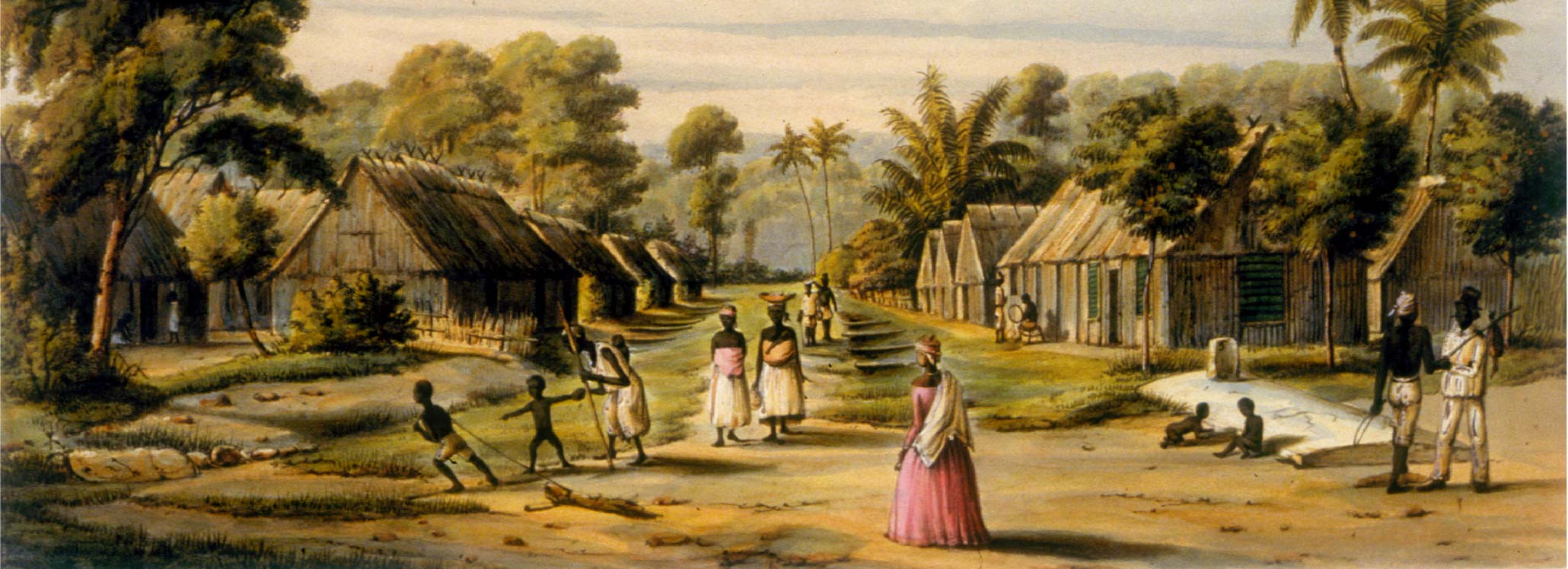Angela Batallas was an enslaved Afro-Ecuadorian who confronted “The Liberator” of Latin America, Simón Bolívar, in order to secure her freedom.
Batallas was born in the cacao-producing Guayas region of present day Ecuador in the early nineteenth century. Nothing is known of her childhood, but in November 1821, she attracted the attention of a 27-year-old merchant named Ildefonso Coronel. He purchased her and secured a house for her in Guayaquil. Batallas later said that he did not force himself upon her, but rather courted her, promising to free her if she responded voluntarily to his advances.
At the time, Bolívar was leading wars of independence against Spain throughout the continent. In 1820, the liberal political forces of Guayaquil declared independence and established the “Republic of Guayas.” The new government immediately prohibited the importation of slaves and then declared that as of July 21, 1821, all children born to current slaves would be freed on their eighteenth birthday. In 1822, Bolívar’s forces permanently liberated the region that is now the country of Ecuador from Spanish control and Bolívar established his headquarters in Guayaquil.
Meanwhile, Batallas had entered into a relationship with Coronel and given birth to a daughter, María del Carmen. Coronel legally recognized the child, implicitly freeing her, but he did not free Batallas as promised. Instead, he took up with another woman and moved Batallas into that woman’s house as a slave. Batallas secured allies and went to court, where she used the language of liberation then in vogue in addressing the judges. The court removed Batallas from Coronel’s possession, but rather than freeing her, it appointed a temporary master to care for her. This was a typical outcome of lawsuits brought by slaves.
Unsatisfied and aware of the current political developments, Batallas walked to Bolívar’s headquarters one day in March 1823 and asked to meet with him. She insisted she would not leave until this happened. Her story was compelling, and Bolívar shortly thereafter sent a letter to the court demanding justice on her behalf. Most likely, Bolívar was motivated by not only by his ideals, but also by a recognition that the struggling young government desperately needed the support of the populace, including the enslaved. Batallas was not famous in her time. But, like many other slaves, she used her knowledge of the struggle for independence to further her own case and vocalized the connections between her individual plight and the broader plight of unfree peoples and nations.
Online Resources
“Batallas, Angela” in Dictionary of Caribbean and Afro-Latin American Biography
“Bolívar, Simón” in Dictionary of Caribbean and Afro-Latin American Biography
“Díaz, María Chiquinquirá” in Dictionary of Caribbean and Afro-Latin American Biography
Bibliography
Townsend, Camilla. "Batallas, Angela." Dictionary of Caribbean and Afro-Latin American Biography , edited by Ed. Franklin W. Knight. , edited by and Henry Louis Gates Jr.. . Oxford African American Studies Center, http://www.oxfordaasc.com/article/opr/t456/e197 (accessed Thu Sep 05 10:46:34 EDT 2019).
Townsend, Camilla. “‘Half My Body Free, the Other Half Enslaved’: The Politics of the Slaves of Guayaquil at the End of the Colonial Era.” Colonial Latin American Review 7, no. 1 (1998): 105–28.
Author
Camilla Townsend
Adapted by
James Almeida and Steven J. Niven
Contributing Institutions
Hutchins Center for African & African American Research, Harvard University, Cambridge, MA.
Oxford University Press (USA) African American Studies Center.





